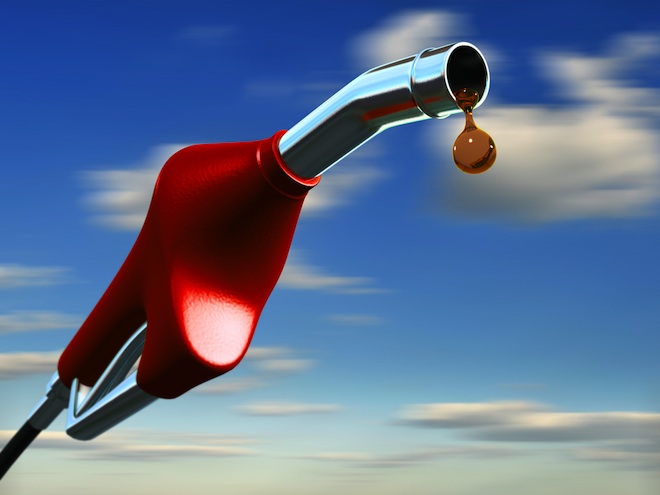One of Aristotle’s laws of nature is that every time fuel prices rise, political snake oil salesmen come out of hiding to blame it on their enemies: They attribute (or implicitly link) cost spikes to the other party’s policy decisions. The solution, they always say, lies in the policies they’ve advocated since what feels like the beginning of time.
This happens every few years, and every few years it’s total nonsense.
Since it’s happening again, and since the press seems once again more concerned about the political implications of rising gas prices than with actual forces driving them up, TPM turned to energy expert Robert Rapier for an analyst’s view.
Rapier is an energy blogger, a renewable energy executive, and a supporter of the Keystone XL pipeline. Last year he wrote an article for the Washington Post titled “Five myths about gas prices,” and he says they hold true today.
Republicans today don’t go so far as to say that if Obama had approved the Keystone XL pipeline, fuel prices wouldn’t have shot up recently. But that’s the implication — and it’s of a piece with a broader claim that Obama hasn’t signed off on enough production in the past few years — even though production has gone up during his presidency.
“There’s lag time — he doesn’t get credit for that, neither does he get blame for high gas prices now,” Rapier says.
In an oil-constrained world, marginal increases in production could have an impact on future global fuel prices, but they could just as easily result in a demand spike in developing countries.
But there’s very little policymakers can do today or could have done in the recent past to upset the price increase. In fact, thanks to a persistently low gas tax, the U.S. remains one of the cheaper places to fill up in the world.
“They could subsidize it, they could tax it more or tax it less, they could put import tariffs on oil coming in or export tariffs going out,” Rapier said. “Outside of forcing a recession in China,” Rapier joked, that’s pretty much it.
On Thursday President Obama called these bluffs in a Florida speech.
“You can bet that since it’s an election year, they’re already dusting off their 3-point plan for $2 gas — and I’ll save you the suspense: Step one is to drill and step two is to drill. And then step three is to keep drilling,” he said. “We heard the same line in 2007 when I was running for President. We hear the same thing every year. We’ve heard the same thing for 30 years. Well, the American people aren’t stupid. They know that’s not a plan, especially since we’re already drilling. That’s a bumper sticker. It’s not a strategy to solve our energy challenge. That’s a strategy to get politicians through an election.”
And it’s true. Gas prices fluctuate seasonally — up in spring, down in fall — for a very specific reason: Butane. As Rapier wrote last year “Butane is a cheap ingredient in gasoline that boils at low temperatures. In winter, this isn’t a problem. But in summer, butane evaporates from gas, polluting the air while leaving us with less fuel in the tank than we paid for. As temperatures rise, refineries replace butane with more costly ingredients and draw down winter inventories just as beach season begins. Chemistry, not corporate conspiracy, limits supply.”
But despite these basic realities, members of Obama’s own party maintain their own myths about how to solve the gas price problem — and when the circumstances were reversed years ago, they were more than happy to peddle the same oleaginous wares that Republicans are pushing today.
Last year, when fuel prices rose, Democrats advocated for tapping the strategic petroleum reserve.
“They did it and oil prices were right back up where they were and there was less oil in the SPR,” Rapier explained. “On the global market it just doesn’t amount to very much, and people know that you don’t have an actual supply there…at some point you’re going to fill that back up…. If you were to dump the whole thing, oil prices would definitely fall, and it would only be a matter of time before they came back up and we’d have to refill the reserve.”
Democrats also blame the current high prices on speculators — investors gambling that the price of oil will rise in the future, and thereby driving it up themselves. That’s partially true, but Rapier notes it’s more of a symptom than a fundamental problem.
“There is certainly an element of speculation,” he said. “If we’re worried about war in Iran, people are going to worry that prices are going to rise, so they’re going to bid up the prices [but] there’s not any excess capacity that people can bring on to counter that. The fact that speculation is able to drive prices up points to that underlying issue.”
Presidents and policy makers can take steps to alleviate the pocketbook costs of high gas prices, and they can create long-term incentives to reduce fossil fuel demand. But there’s very little they can do when fuel prices spike, no matter which party they’re in.
“These gas prices are not limited to the U.S. They’ve gone up everywhere,” Rapier says. “The U.S. president can not solve that global problem.”
Image from Orla / Shutterstock










